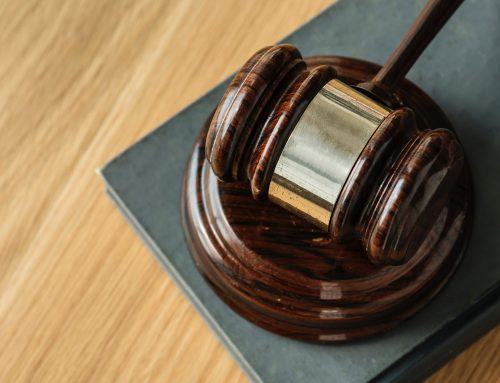FCA Rules Flight Attendant’s Parking Pass a Taxable Benefit
Summary
The taxpayer received a parking pass from his employer. CRA reassessed to include the value of the parking pass as a benefit pursuant to paragraph 6(1)(a) of the Income Tax Act. The Tax Court agreed that it was a benefit and dismissed his appeal. The taxpayer appealed to the Federal Court of Appeal (“FCA”), alleging that the Tax Court had erred. The FCA disagreed and dismissed his appeal.
Background
Mr. Smith was a flight attendant with Jazz Aviation LP (“Jazz”) at the time. He lived in northwest Calgary, which was 25 minutes away from the Calgary International Airport. While at the airport, he used the parking pass that Jazz provided to him.
The Minister of National Revenue reassessed Mr. Smith’s 2011 taxation year to include the value of the parking pass in his income. In doing so, “…the Minister relied on the following assumptions: (1) Mr. Smith was employed by Jazz Aviation, (2) Mr. Smith was based as a flight attendant out of the airport, (3) Jazz Aviation provided Mr. Smith with a pass for parking at the airport, (4) Mr. Smith parked at the airport while working, (5) Mr. Smith did not reimburse Jazz Aviation for the cost of the parking pass, and (6) the annual fair market value of the parking pass was $504.”[1]
Tax Court Decision
Mr. Smith appealed the reassessment to the Tax Court of Canada. His position at Tax Court was that he received no substantial benefit from the pass and that it was Jazz, and not himself, that enjoyed the practical and economic advantages flowing from its use.
Mr. Smith essentially argued that Jazz was the primary beneficiary of the parking pass. Jazz required him to report to work abnormal working hours, starting as early as 5:00 a.m. and ending as late as 1:00 a.m., and that public transit was not available then. He argued that he was required to work mandatory overtime without advance notice, to report to work on short notice, and to adhere to modified shift schedules. Lastly, he argued that providing a parking pass minimized the risk of absent employees, and avoiding that risk was a benefit to Jazz.
The Minister’s position was that Mr. Smith was the primary beneficiary of the parking pass, because he did not use his vehicle in the course of his employment duties, and that any benefit to Jazz Aviation was minor and incidental.
The Tax Court found that Jazz paid for parking passes pursuant to the terms of a collective agreement (and not solely to ensure the punctuality of its flight attendants), and that there was no evidence to establish flight attendants who commuted to work by car and parked at the airport were more reliable than those who used other means of transportation. The Tax Court found the parking pass was a taxable benefit and must be included in income.
Issue
The issue was whether the Tax Court erred in finding that Mr. Smith was the primary beneficiary of the parking pass and that as such, was taxable on the value of the parking pass.
Position of Parties
On appeal to the FCA, Mr. Smith argued that the Tax Court erred by:
- wrongly requiring Mr. Smith to show that Jazz Aviation could not have reduced its operating costs by terminating Mr. Smith’s employment and hiring another flight attendant who did not need parking, and
- by improperly considering whether flight attendants who travelled to work by car were more reliable and flexible than those who travelled by other means.
Mr. Smith argued the cost of parking was not personal, mainly because of the location of the airport and his hours of work.
The Crown asserted the Tax Court was correct in its analysis and in its decision. It maintained that commuting and parking costs are usually personal and that reporting for work on time is a requirement for all employees and not one exclusive to flight attendants.
Decision & Analysis
The purpose of paragraph 6(1)(a) is to include in income any compensation received by employees, whether in money or otherwise. This ensures equitable tax treatment of employees who are paid in cash and those who are paid in kind. The Court considered the decisions of Savage[2] (where taxpayer received a $300 award for passing employment-related exams), Cutmore[3] (where employer paid for tax returns to be prepared for executives) and McGoldrick[4] (where casino paid for an employee meal since they were not permitted to bring their own food) and agreed with the underlying ratio that a payment by an employer is a benefit if it subsidizes a personal cost.[5] Furthermore, the jurisprudence has established that travel costs are personal, and that Mr. Smith’s particular travel costs stemmed from where he chose to live.
The Court found that the cost of parking at the airport was a consequence of Mr. Smith’s personal choices and not bound up in his employment duties or his work as a flight attendant. The Court dismissed Mr. Smith’s appeal on the basis that the parking pass was a taxable benefit pursuant to paragraph 6(1)(a) of the Income Tax Act.
Key Points
The Judge’s analysis reveals that his decision would likely have been different if the vehicle had been used in the course of Mr. Smith’s employment. The Court referenced the Anthony v. The Queen[6] Tax Court decision, where it held that employee parking at a private boarding school was a paragraph 6(1)(a) benefit, because none of the appellant employees “were required to use their vehicle in the course of their employment,” and that it was difficult to see how the employer “could have otherwise been the primary beneficiary of the parking arrangement” in those circumstances. In Mr. Smith’s case, the same held true, since he was not required to use his vehicle in the course of his duties.
Also, there was a similar case referenced by the Court where a taxpayer argued that the parking pass he received was not a taxable benefit because it allowed him to work longer hours, which ultimately benefitted his employer. That appeal was dismissed as well.[7]
If you are assessed a taxable benefit that you don’t agree with, Call Ummat Tax Law today.
[1] Smith v. Her Majesty the Queen 2019 FCA 173, at para. 10.
[2] The Queen v. Savage, [1983] 2 S.C.R. 428 at 441.
[3] Cutmore (R.H.) et al. v. M.N.R., [1986] 1 C.T.C. 2230, 86 D.T.C. 1146 (T.C.C.).
[4] McGoldrick v. The Queen 2003 TCC 427.
[5] A taxable benefit was found in all three cases.
[6] 2010 TCC 533.
[7] Adler v. The Queen 2007 TCC 272.




